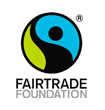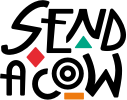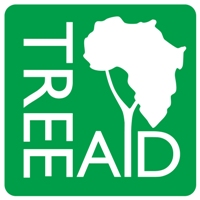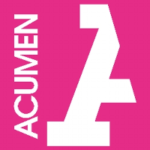Rural livelihoods (agriculture) is the sector where we have undertaken most studies, the projects we have conducted in this area are listed below:

AgDevCo, Uganda: AgDevCo invest in agricultural related businesses across Africa like Uzima, who provide day old chicks, feed and training to farmers. AgDevCo supported Uzima to provide trainings on good poultry practices and to facilitate access to finance for poultry farmers. This programme intends to improve income, resilience and food security. This QuIP study interviewed 36 individuals to understand the impact of the Uzima project and AgDevCo’s technical assistance. Nov 23- Apr 24
AgDevCo, Ghana: A midline impact study on the Babator Irrigated Farming Hub (BIFH) project. Quantitative household survey alongside a double QuIP study: 48 interviews and 8 focus groups. Jan – Jun 2022.
AgDevCo, Uganda: Exploring the impact of formal employment for female field officers working for a local agricultural development company in the East Acholi region. 36 individual interviews and 4 focus groups. Carried out by Bath SDR between October – December 2020.

Fairtrade Foundation, Cote D’Ivoire: Evaluation of the experiences of cocoa farmers working with the Fairtrade Foundation, using the On Our Radar dashboard. Jan – Apr 2022.

Diageo, Kenya: Evaluation of Diageo’s local raw materials programme, connecting sorghum farmers in Eastern and Western Kenya with access to markets, training, and agricultural inputs. 48 interviews and 8 focus groups. Carried out by Bath SDR between October – December 2020.
Diageo, Cameroon: Impact study of Diageo’s ‘Water of Life’ programme in Mayo-Kani district in Cameroon. 48 interviews and 8 focus groups. Carried out by Bath SDR between June – September 2019.
Diageo, Uganda: Impact study of Diageo’s programme to support smallholder sorghum and cassava producers in two districts in Uganda. 48 interviews and 8 focus groups across various farmer’s groups in each district. Carried out by Bath SDR between June – August 2017.
Diageo, Ethiopia: ‘Deep dive’ impact study of Diageo’s programme to support smallholder barley producers in two Zones of Oromia Region. 48 interviews and 8 focus groups across two farmer’s groups in each Zone. Carried out by Bath SDR between July – September 2016. Diageo have shared their summary of the report here.

Aga Khan Development Network, Pakistan. Two QuIP studies commissioned by Aga Khan Development Network in northern Pakistan. The first evaluated Aga Khan Foundation‘s ‘Satpara Development Project’ (24 interviews and 4 focus groups) and the second evaluated Aga Khan Rural Support Programme‘s ‘Food Security Project, Programme for Resource Poor Valleys’ (48 interviews and 8 focus groups). Both carried out by Bath SDR between May – September 2019.

Send a Cow (now Ripple effect), Ethiopia: Evaluation of Send a Cow‘s ‘Sustainable Agriculture and Rural Opportunities’ programme in Southern Ethiopia. 36 interviews and 6 focus groups conducted across three kebeles. Carried out by Bath SDR between December 2018 – January 2019.

Self Help Africa, Zambia: Bath SDR were commissioned to explore the impact of two agricultural projects who received funding from the ENTERPRISE fund. Farm Depot and Saro Agro both aim to reduce poverty and improve nutritional security through their interventions. Farm Depot provides loans to farmers to purchase day-old-chicks and facilitate training on agricultural practices, climate smart agriculture and nutrition for a range of farmers. Saro Agro sell agricultural machinery and hope to increase productivity of farms through mechanisation and training. April – Sep 2024
Self Help Africa, Zambia: This study looked at the impact of Good Nature Agro (GNA), an agricultural project that aimed at improving smallholders’ income, nutrition and resilience through the growth and sale of legumes. There were also external factors found to be effecting crop yields and income and these were reported on. 24 farmers were interviewed and four key informant interviews were conducted with GNA staff. June– Sept 2023.
Self Help Africa, Kenya: A double QuIP study that looked at the impact of two agricultural projects, one which aimed to help smallholder farmers by giving training and seeds for growing cotton and another which had the same theory of change but worked with beans. This study looked at the impact of these programmes and how growing cotton or bean crops contributed to changes in farmers’ lives. External factors that were effecting crop yields and agricultural practices were also found and reported on. May– Jul 2023.
Self Help Africa, Kenya: This study analysed why farmers chose to grow pyrethrum (a flower used in insecticide) and how it contributed to changes in their lives. External factors effecting crop yields and agricultural practices were also explored. Dec 2022– Feb 2023.
Self Help Africa, Kenya: Evaluation of the impact on farmers of a value chain project which includes the construction of a new pack-house with cold chain transport and storage facilities as well as investment and training in pre-and post-harvest management, including agronomy, harvesting, handling, storage, processing, transportation and marketing. June – August 2022. A case study is available here.
Self Help Africa, Burkina Faso: Evaluation of Bill and Melinda Gates Foundation project, ‘Realising Agricultural Productivity Gains’. 24 interviews and 4 focus groups. Carried out by Bath SDR between October – December 2017.
Self Help Africa, Zambia: Evaluation of the Irish Aid Local Development Programme in Zambia. 48 interviews and 8 focus groups across various farmer’s groups in two districts. Carried out by Bath SDR between May – June 2017.
Self Help Africa, Kenya: Post project QuIP impact study of the Gorta Self-Help Africa Community Based Seed Systems Project in Western Kenya. 24 interviews and 4 focus group discussions across six farmer’s groups and two counties. Carried out by Bath SDR between February – April 2016.

Tree Aid, Ghana: Evaluation of Tree Aid’s Non Timber Forest Products (NTFP) project on the livelihoods and wellbeing of intended beneficiaries at the household level. 24 interviews and 4 focus groups. Carried out by Bath SDR between January – February 2017.

Acumen, India: Development of a ‘Lean’ approach to the QuIP using telephone interviews to assess the impact of a social impact investment project with a dairy company in Kerala. Oct 2016.

Oxfam GB, Ethiopia: Post-project QuIP study assessing the impact of Oxfam‘s Coffee Value Chain project on women’s empowerment in Jimmu Zone, Oromia Region – complementing a quasi-experimental impact assessment. 48 interviews and 8 focus group discussions across six coffee cooperative groups. Carried out by Bath SDR between April – July 2016. You can read Oxfam’s review of the two evaluations here.


